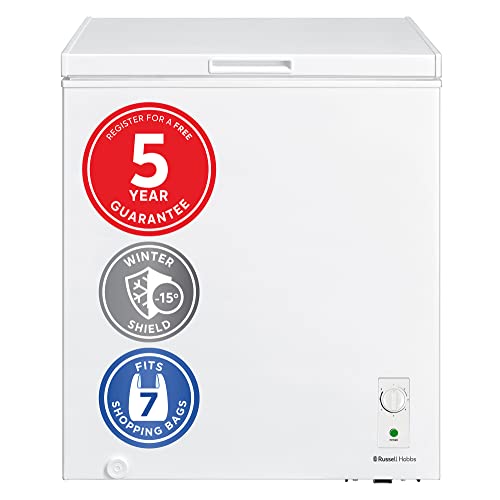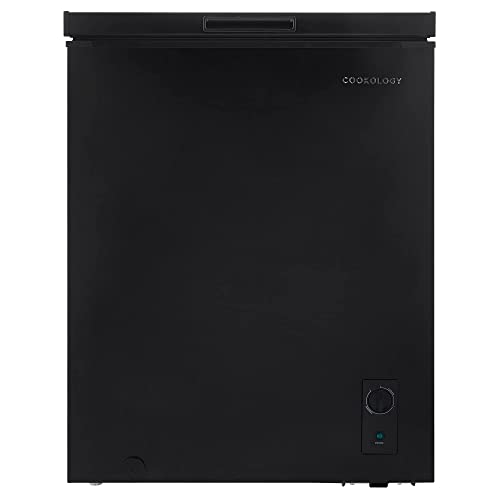10 Mistaken Answers To Common Fridge Larder Questions Do You Know The …
페이지 정보
작성자Florene Goldsmi… 댓글댓글 0건 조회조회 95회 작성일 24-02-03 08:36본문
 Tips For Organizing Your Fridge Larder
Tips For Organizing Your Fridge Larder A fridge larder is an excellent method to store produce that's over its prime. You can also utilize smaller refrigerators and save money on energy costs!
A fridge larder is an excellent method to store produce that's over its prime. You can also utilize smaller refrigerators and save money on energy costs!It's a convenient place for storing provisions like eggs, bread, and hard cheeses. Fresh herbs are another option that benefit from the low humidity.
Keep It Organized
A fridge larder can help reduce food waste, and makes it easier to locate the items when cooking. The refrigerator, like any other room in your home, can become overcrowded and out of control. Here are a few suggestions to keep your refrigerator organized and functioning smoothly.
Take inventory
Holly Blakey, an organizer at Breathing room, says that taking inventory is the most important step in organizing your fridge. "Take everything out, look up expiration dates, and wash the surfaces." Dispose of food that has expired, throw or freeze leftovers and throw away any food items that aren't eaten before it gets rotten.
Blakey suggests placing the most frequently used items on the front of your fridge. Then, tuck away the items that aren't used in the back and bottom of your fridge.
Organize Your Freezer
If you have a freestanding freezer in your chest arrange it using clear storage bins that will make it easier to locate food items. Label each bin clearly and group items that are similar together. Store condiments in one bin, sodas in another, and cheese sticks in a third. You can also make use of a lazy Susan to store condiments and other items that are frequently used. This will prevent them from being lost in the back.
In a fridge with a side-by-side layout, store foods that require the coldest temperatures in the back, and warmer foods toward the front. The lower shelf is ideal for milk, cream and butter (it doesn't melt) yogurt and other items that don't require constant temperatures. And the cooler drawers are the best to store spillage from produce.
Drawer dividers are a cost-effective and simple way to make your refrigerator more functional. They'll keep your fruits and vegetables from splattering around, and prevent them from spoiling before you can use them. They'll also keep your drawers clean and organized. To prolong the longevity of tender herbs, store them in water. (Mason jars that have an inch of water work well.) Alternatively, you can buy an herb saver to place in your refrigerator.
Keep It Visible
Keeping your fridge organized will make it easier to find healthy food choices that keep you full and content throughout the day. Make sure that all of your food containers are transparent so you can see the contents. This will tell you the number of days left on your expiration date and make sure you don't store food that is past its prime.
Start by giving your refrigerator's larder a thorough cleaning. Scrub the shelves, drawers, and racks with warm water and dish detergent. Then give your refrigerator a good clean-up to rid it of any soiled crumbs and spills that might have accumulated over time.
Once everything is clean and dry It's time to replenish your refrigerator. Start by storing your cheeses and deli meats in the drawer. Then, move on to the produce drawer. This is where you should put away the leafy greens as they can wilt easily. Keep it at least three quarters full to ensure maximum freshness.
You can store bulky items in the pantry drawer of some refrigerators, like tray sets for fridge Freezer Uk parties and large bags of frozen veggies. You can also use this area to house condiments like mayonnaise, mustard, and ketchup as well as nuts and other canned items. Milk should not be stored here as the temperature can fluctuate and result in it spoiling quickly.
The back of your refrigerator should be used for condiments, salad dressings, and other jarred foods that last for longer. Use a riser to raise jars so that they are easier to read. This will help you avoid opening and closing the lids a few times.
When you fill each bin, make a effort to label it using markers or stickers that are easy to read. This will let your family members easily identify what each container is and make it easier for you to locate what you're looking for. Adding some labeled bins is also a great way to declutter your kitchen and reduce the amount of plastic waste you generate.
Keep Cool
A well-stocked fridge larder will keep food items at the correct temperature to avoid spoilage and also to stop the growth of bacteria. Larders are installed into cabinets that are already in place or stand on their own. They are typically located on the north-facing side of your house to reduce exposure to sun and could also have additional insulation or a ventilation system to prevent heat from getting into the food storage area. They typically also have more solid walls and less windows to keep the inside at a lower temperature than other areas of the home.
A larder should have a drawer for meat and one for vegetables and fruits, each with a particular setting that can be programmed to the appropriate temperature. This ensures that burgers and chicken will be cooked well, but that the salad greens won't become overly wilted. A drawer for the larder can be set to a low-humidity setting for fruits and vegetables that release a lot of moisture, such as cucumbers or tomatoes.
To preserve cheese, store it in other drawers in the fridge. Wrapped in paper, greaseproof or clingfilm or greaseproof film to keep it fresher for longer. drinks, non-perishable condiments, such as ketchup, water and eggs can also be stored in the refrigerator door. Milk should not be kept in the fridge doors, however - these shelves are warmer and more unstable than drawers in other drawers.
For a streamlined look, corralling small containers of food and snacks can make them more visible, which is also beneficial when family members are looking for food while on the move. Labelling shelves or bins to show which food items should be consumed first is a good idea, particularly in the event that your family members do not know how to read labels!
Larders are also an excellent place to store leftovers. You can keep them in various plastic and glass containers that are safe for food preparation. They are ideal for storing smaller portions of ingredients. Making these available for quick meals is a sure way to save money and time when shopping. If you have a clean, tidy fridge with space specifically designated for storage of the items, it will be easier to keep on top of your food budget!
Keep it fresh
The best tips for organizing your Fridge freezer Uk reduce food waste by helping your healthy food items last longer. Some smart strategies will keep your fresh foods at the correct temperature and make it easier to see what's in your fridge.
Crisper drawers are found in the majority of refrigerators. They alter airflow and increase humidity, which can extend the lifespan of fruits and vegetables. It is essential to use these drawers correctly. Mixing fruit and greens could cause the former, such as the greens to wilt or become spoiled due to the ethylene created. Separating the different types of produce and storing them in the appropriate drawers is crucial.
Door shelves are typically the most warm part of the fridge. They should be reserved for foods that don't require extra cold or special storage conditions like jars of jam, chutneys salad dressings, and long-life juices (anything purchased in bulk and with the same expiration date). The top shelf is great for beverages that can be stored upright and without spilling, like milk and water.
Refrigerator drawers can be difficult to organize with all the items rolling around and getting scattered However, there are simple tips to aid. First, you should invest in refrigerator drawer dividers that keep produce separated and prevent them from colliding against each other. Organizing by height also helps. Keep produce of similar heights on the same shelf and don't place items that aren't the same height in close proximity -- raw meat shouldn't go in the same drawer as cooked Ham!
A thermometer is an additional essential item to have in your fridge. It's a cheap, easy-to use tool that will make sure that your fridge is at an ideal temperature to ensure your food is fresh and safe.
Don't forget to keep a supply of plastic grocery bags in your refrigerator for storing items that don't have their own container. The moisture contained in the bag prevents vegetables from rotting. And for herbs that would normally wilt within days, an easy method to keep them fresher longer is to wash them thoroughly and put them in the glass of water which is just as efficient in retaining moisture than the plastic bag.
댓글목록
등록된 댓글이 없습니다.
